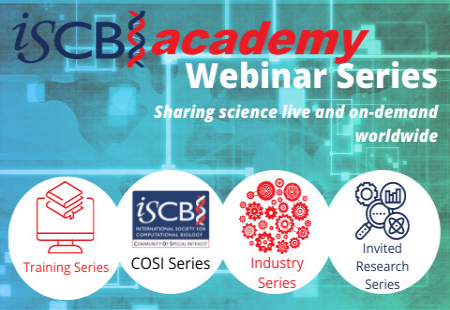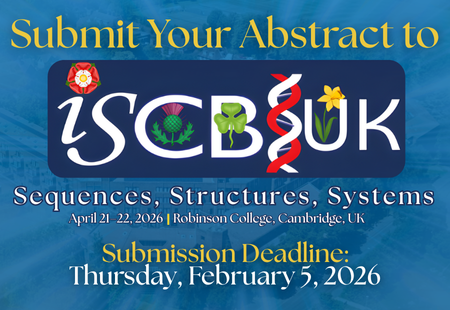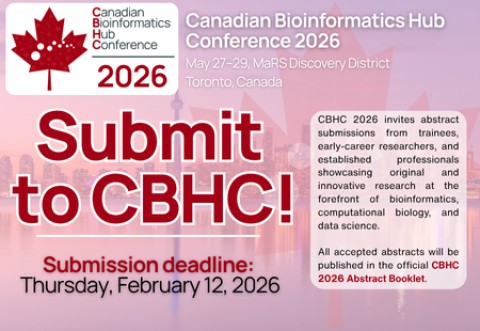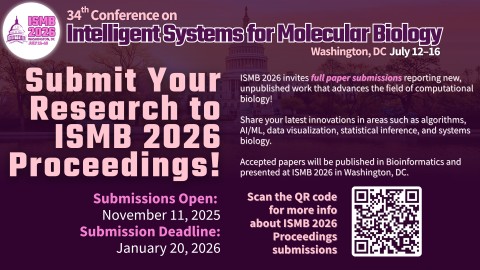KEYNOTE SPEAKER - DAVID A. FENSTERMACHER, PhD
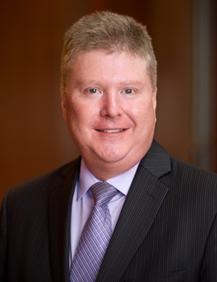 Dr. David Fenstermacher is currently the Vice President R&D-Bioinformatics at Medimmune, LLC. With more than 30 years of research experience as a molecular biologist and bioinformaticist, he has held several academic appointments at multiple universities and participated in several national and international informatics projects.
Dr. David Fenstermacher is currently the Vice President R&D-Bioinformatics at Medimmune, LLC. With more than 30 years of research experience as a molecular biologist and bioinformaticist, he has held several academic appointments at multiple universities and participated in several national and international informatics projects.
During his eighteen years in biomedical informatics, David has designed and directed the implementation of numerous bioinformatics and biomedical informatics distributed computing systems to support basic, translational and clinical research, including multiple institution research projects. He has also designed data warehouses that integrate patient-level clinical data, genomics (genome-wide association studies, massively parallel sequencing, array-based technologies) and other ‘omics data to support studies focused on cancer and other human diseases. Data management systems designed by David have included: collection and integration of subject clinical data; data quality methodologies, development of web-based forms for input, storage and retrieval of clinical and research data, customized data representations using data governance principles and data sharing technologies. Most recent academic research focused on developing informatics resources that span the informatics continuum of Bioinformatics, Biomedical Informatics and Clinical/Medical Informatics specifically for precision medicine including clinical decision support, and health outcomes research.
Before joining MedImmune, David served as the Chief Research Information Officer for Virginia Commonwealth University (VCU) and was Founding Chair of the Department of Biomedical Informatics at the H. Lee Moffitt Cancer Center.
David received his B.S. in Biology from Bloomsburg University of Pennsylvania and his PhD in Molecular Biology and Genetics from the University of North Carolina at Chapel Hill.
top
SCIENCE FAIR
The purpose of the mini science fair is to allow middle and high school students to think creatively, conduct background research, and develop a proposal for a unique solution that can help address important problems that face the public health and medical fields. Through this process, students will be able to think like scientists, apply technologies to pressing global health issues, and learn how to make existing technologies even better.
Registration will reopen when a new date in the fall is determined.
|
Theme of the Mini Science Fair:
The theme for this year’s youth symposium is Precision Health. This area is broad to allow students room to explore their own interests and see how computational and engineering methods can be applied to global health issues.
Examples of areas in Precision Health include:
Before the Symposium:
Students will be able to form teams to help brainstorm and think of ideas. A few weeks before the symposium, the team will submit a brief abstract of their proposal. The abstract submission will take place on the symposium website.
The Symposium organizer will have research scientists available to help guide the teams.
During the Symposium:
At the symposium, there will be a time when teams will give poster presentations to various visitors at the symposium (family and friends) and will also present their idea to judges. The judges will score and determine the top projects, who will receive an award at the closing ceremonies.
Presentation Details:
At the science fair, individuals or teams can present their project in a variety of ways. The different options include a trifold poster board, powerpoint presentation on a laptop, or even printed out images and notes as a supplement. Presenters are not required to have a trifold poster board, and can instead determine what presentation method is best for them. The symposium organizers will provide a table for each project at the science fair.
Judging Criteria:
--> Click here for a PDF of this rubric.
RUBRIC FOR JUDGING PROJECTS IN YOUTH SCIENCE FAIR
|
| CRITERIA |
Excellent (4-5 pts) |
Competent (2-3 pts) |
Needs work (0-1 pts)
|
| Scientific question is identified |
Question is explicitly stated. Hypothesis to address the question or technical solution is explicit. |
Question and/or hypothesis is implicit |
Unclear what is the scientific questions and no statement of hypothesis
|
| Significance of problem explained |
Explains the problem being addressed, including the prevelance or cost to society or the environment. Discussion of other solutions, including deficiency of those solutions |
Briefly mentions the problem, with some discussion of impact to society. Mention of other solutions |
No mention of prior attempts to solve the problem; no understanding of significance of the problem |
| Methods used by students to understand problem and frame the question |
Student explains how they did their research, e.g. reading the literature, online databases, other onlines sources; discussions with scientists. References included on presentation
|
Research methods are implicit or references are not included on presentation |
Research methods are unclear and no references are provided
|
| Methods to perform proposed research, test hypothesis, or create new technology States whether designing computer algorithm, proposing clinical trials, or biological experiments. |
Includes appropriate control experiments or control computer simulations; OR, Has good plan of technology development and alternatives.
|
Proposed methods are not stated explicitly. Understands about need for control experiments or simulations but not included in plan; OR, technology plan has no contingencies. |
No understanding about control experiments or simulations. Experiments or technology development are poorly designed
|
| Presentation |
Uses good visual aids. Shows deep understanding of the problem domain. Provides good summary of all the information instead of focusing on details.
|
Some visual aids, but overall too much text. Spends too much time on details instead of focussing on big picture. |
No or inappropriate visual aids. Reads from written report. Unable to answer questions about project. |
| Student/Team: |
|
Judge: |
|
top
WORKSHOPS
DNA Sequencing Workshop
Of Mice and Men: From DNA and Mutations to Cellular Activities and Aberrations.
How do we know what information is encoded in DNA and how this information gets synthesized into molecules that determine the inner workings of a cell? This workshop will provide students with hands-on experience on bioinformatics tools that scan DNA sequences for protein-encoding genes and then compare genomes of different species to transfer structural and functional information from characterized proteins to uncharacterized ones. Students will learn how protein structure determines function and, more importantly, get a first-hand look into advanced computational methods that are elucidating how DNA mutations percolate all the way to dysfunction and disease. The focus will be on human neurodegenerative disorders and cancer.
Galaxy Workshop
The Galaxy workshop will will introduce genomic data analysis with a differential expression example, using RNA-Seq data and the Galaxy Platform.
Forensics Workshop
The Forensic workshop will teach forensic Experiment styles while giving groups challenges to solve.

